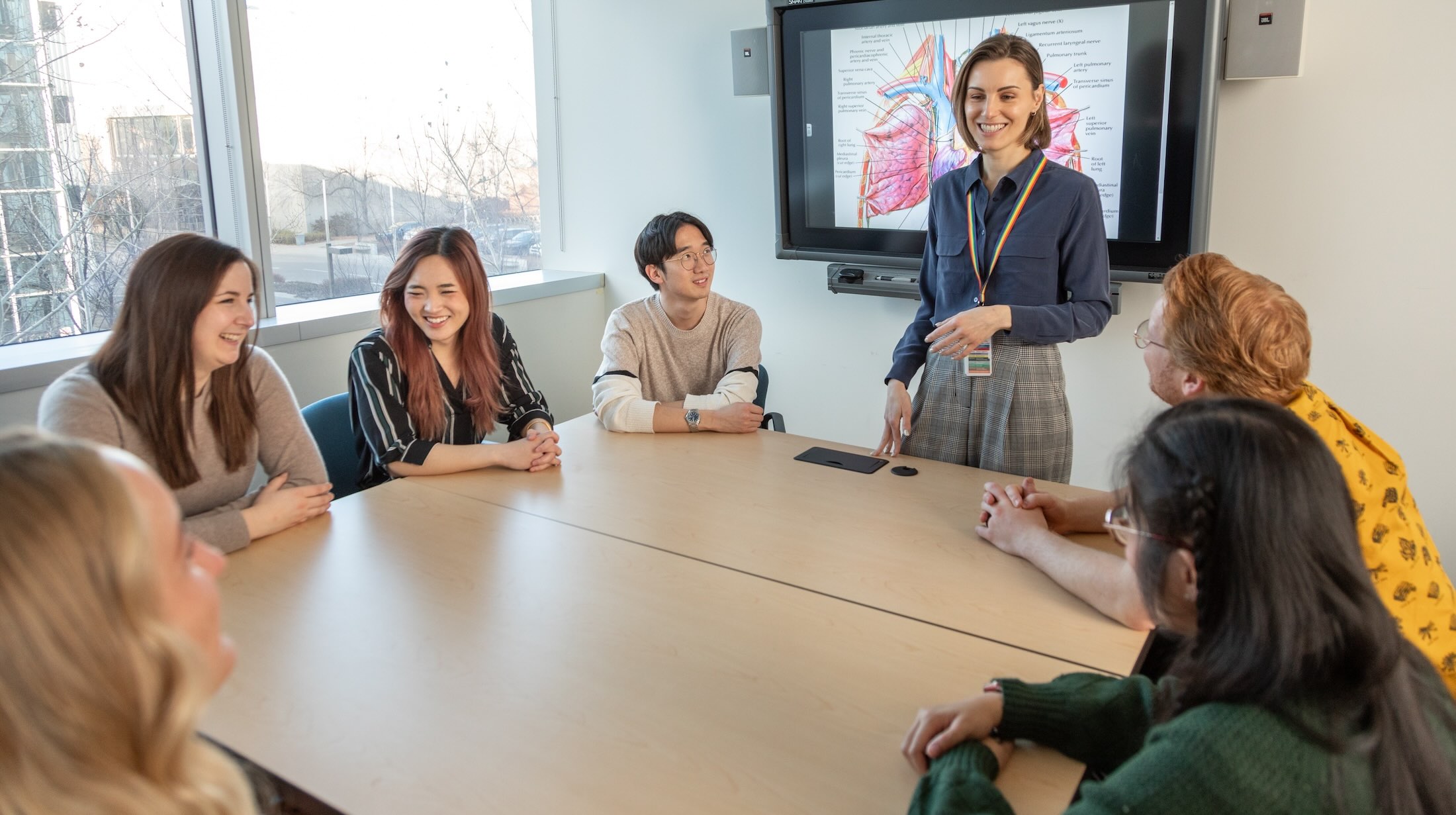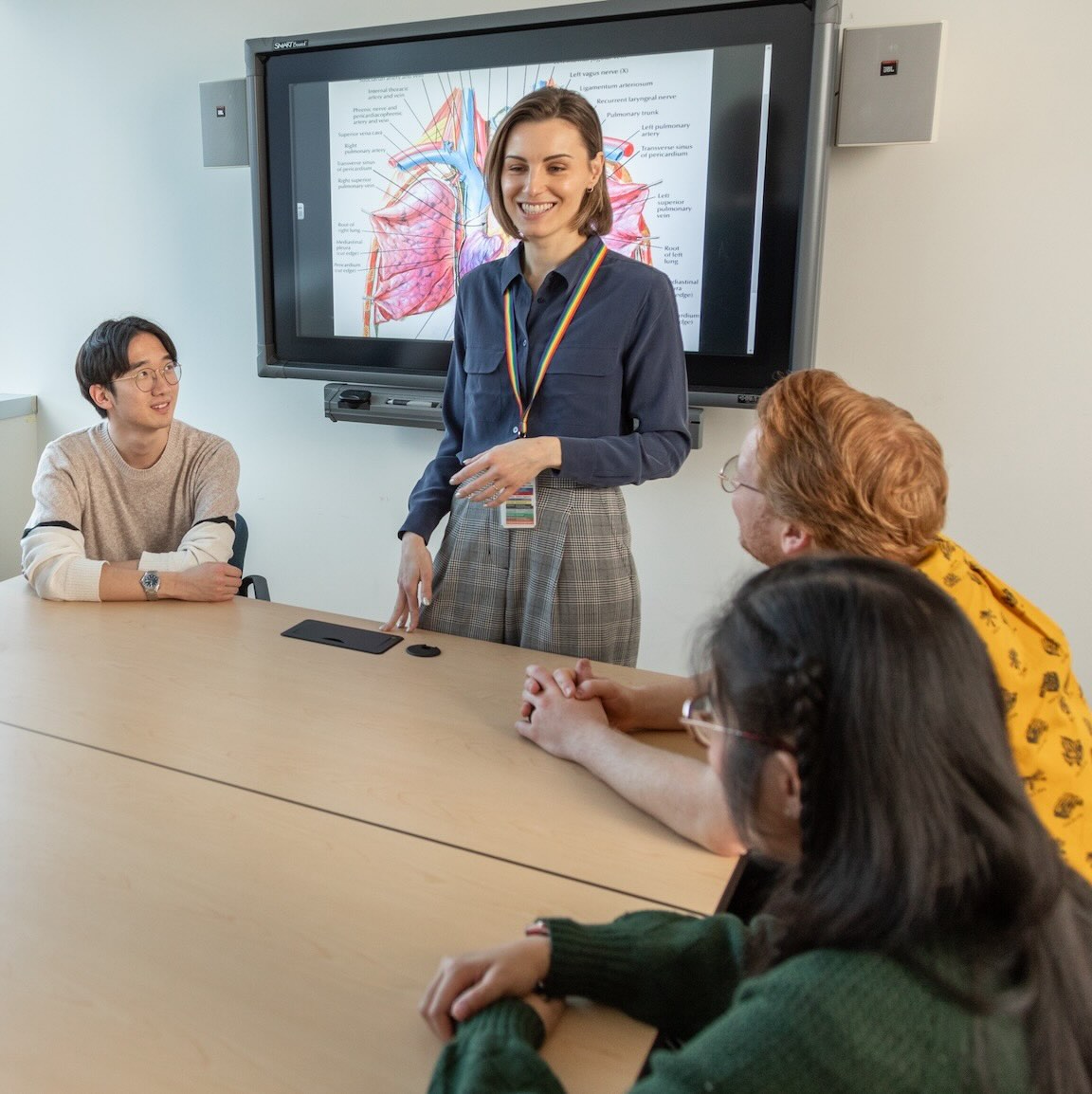Curriculum


The MD Program focuses on life-long learning, problem-solving skills, teamwork and interprofessional education through experiential learning. Students develop a strong theoretical background in the foundational scientific and clinical principles of medicine.
Beginning in pre-clerkship, students apply this knowledge to clinical cases (in both simulated and clinical settings) and develop the clinical readiness required for the patient care setting in clerkship.
Students will learn professional identity formation, evidence-based medicine, clinical skills (communication and physical exam) and clinical reasoning principles, all of which are required to function effectively as a physician and lifelong learner.
Each course presents the material step-by-step from basic information to clinical application, building on foundational knowledge and skills. Our MD Program is one of the only programs in the country to offer a full-dissection anatomy lab. The lab is available to give students the valuable learning opportunity of dissecting human cadavers.
Clinical exposure begins in Years 1 and 2, becoming a fully immersive clinical learning experience at the start of Year 3.
Curriculum Recommendations
Thank you for your interest in providing suggestions for the MD Program curriculum. Please click on the button below to make recommendations about the curriculum. Be as specific as possible about what you suggest should be added/removed/modified in the curriculum. Your suggestions, including context, details and background information will be used to analyze the curriculum which helps identify gaps and redundancies. We collect your email address so that we can follow up with questions if necessary.
Curriculum Recommendation form
Questions can be directed to Petar Petrov, Lead, Curriculum Management Unit (papetrov@ualberta.ca).